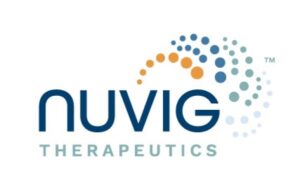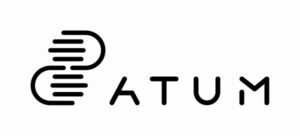Webinar Preview
Antibody glycosylation: Effects, engineering and analysis
Therapeutic proteins produced in Chinese hamster ovary (CHO) cells commonly include post-translationally added N- or O-linked glycans that are critical quality attributes of drugs as they influence activity, immunogenicity, half-life and much more. Engineering the identity and abundance of the glycans on the therapeutic protein and analyzing the glycan distribution is often key for clinical success.
The sialylation of antibodies within the Fc domain (at ASN297) regulates the balance between inflammation and tolerance. Non-sialylated antibodies promote inflammation via activation of the Type I Fc receptors, whereas sialylated antibodies reduce inflammation and restore immune self-tolerance via activation of the Type II immunomodulatory Fc receptors DC-SIGN and CD23.
Patients with chronic autoimmune disease commonly present with the low circulating titers of sialylated antibodies, and therefore do not appropriately engage the Type II tolerizing Fc receptors. In this webinar, the expert speakers will discuss a novel therapeutic strategy for the treatment of autoimmune diseases and the administration of a recombinant human IgG1 Fc engineered to agonize the Type II Fc receptors to re-establish normal immune homeostasis.
In this webinar, the experts will also provide some background on how glycosylation is linked to modulating the immune system and how the glycosylation pathways can be engineered for a range of drug development effects, including increasing half-life and bioavailability, enhancing antibody-drug conjugate (ADC) effects and modulating the anti-inflammatory response.
Register for this webinar today to gain insights into the effects of glycosylation on drug efficacy and safety and how engineering glycan profiles can enhance clinical outcomes.
Speakers

(Moderator) Bjørn Voldborg, Head of the National Biologics Facility, Technical University of Denmark (DTU)
Bjørn Voldborg is the Head of the National Biologics Facility at the Technical University of Denmark (DTU) and has more than 20 years of experience in both academic and industrial settings and has worked with recombinant protein production. Bjørn was Team Leader in the biotech company Pharmexa A/S for more than 8 years and was responsible for molecular cloning and expression of protein-based drug candidates.
In 2009, he went to the NNF Center for Protein Research at the University of Copenhagen as Head of the Protein Production Unit. Since 2012, Bjørn has been heading the CHO Cell Line Engineering research at DTU dedicated to the engineering of improved protein production cell factories. Since 2021, he has been heading the Cell Line and Protein Production Facility and the National Biologics Facility at DTU. From January 2024, Bjørn is also functioning as Senior Advisor in Mammalian Cell Technologies at Bioneer A/S, a non-for-profit CRO.

Greg Coffey, PhD, Co-Founder & Vice President, Immunology & Clinical Translational Research, Nuvig Therapeutics
Greg Coffey, PhD, has more than 20 years of experience in clinical translational research and drug development. Before founding Nuvig Therapeutics, he served as Senior Director of Clinical Translational Medicine at Alexion/AstraZeneca, overseeing the implementation of clinical studies to further our understanding of disease pathobiology, drug mechanism of action, PK/PD relationships and biomarkers that are predictive of clinical response in a variety of autoimmune diseases.
Prior to this, Greg worked at Portola Pharmaceuticals, where he led the immunology research and in vivo pharmacology groups. In this dual role, he oversaw the discovery and development of two small-molecule kinase inhibitors, the first completing a series of Phase I healthy volunteer trials prior to partnering with Biogen IDEC, and the second completing a Phase II study in hematological malignancies where Greg served as the clinical project team lead, overseeing all aspects of the development program.
His extensive publication record demonstrates the nature of this work over a period of ~15 years. Greg received his postdoctoral training at the Department of Medicine at Stanford University, and his PhD from the Department of Pharmacology and Experimental Therapeutics at the University of Minnesota.

Divya Teja Vavilala, PhD, Head of Protein Analytics, ATUM
Divya Teja Vavilala, PhD, is a seasoned scientist with 10+ years of experience in biotherapeutic analytics, protein purification and expression. As Head of Protein Analytics at ATUM, Divya has excelled in scaling the department, managing high-stakes projects and implementing innovative, cost-effective solutions.
Divya has spearheaded the implementation of an analytical department, introducing new analytical techniques and workflows that handle the analysis of 8,000 to 10,000 protein lots annually, alongside numerous cell line development projects.
Divya has also excelled in developing numerous protein analytical assays, significantly enhancing analytical capabilities of ATUM’s different platforms such as developability, bispecific and miFUC. She has successfully established various assays to determine protein post-translational modifications, purity and other critical parameters, and has integrated these assays into the company’s LIMS AI platform.
In addition to analytical technical expertise, Divya has made significant contributions at ATUM and Catalyst Biosciences by developing and standardizing multiple purification systems at various scales.
Divya holds a PhD in Pharmaceutical Sciences and Molecular Biology/Biochemistry, and an MS in Molecular and Cell Biology from the University of Missouri-Kansas City, with research on hypoxia-induced angiogenesis in eye diseases.
Who Should Attend?
This webinar will appeal to:
- Antibody Scientists
- Immunologists
- Analytical Scientists
- Drug Developers
- Process Development Scientists
- Cell Line Engineers
- Cell Line Development Scientists
What You Will Learn
Attendees will learn about:
- How glycosylation happens
- How antibody N- or O-linked glycosylations are detected and how to engineer the identity and abundance during antibody manufacturing
- Functional examples of how glycosylations influence antibody immunogenicity and half-life
- A promising case study on engineering IgG1 Fc as a cure for autoimmune diseases
Xtalks Partner
ATUM
ATUM is a leading biotechnology company based in California. For over 20 years, ATUM has provided high-quality services to life science researchers, including Gene Design and Synthesis, Protein Engineering and Production, Leap-In Transposase®, Cell Line Development, and Master Cell Banking (MCB). Using advanced machine learning, proprietary algorithms, and an integrated Laboratory Information Management System (LIMS), ATUM supports biotech needs from virtual sequence to manufacturing-ready MCB. Committed to innovation, ATUM accelerates time-to-market and supports the biotech ecosystem from pre-clinical research through IND and beyond. Learn more at www.atum.bio.
You Must Login To Register for this Free Webinar
Already have an account? LOGIN HERE. If you don’t have an account you need to create a free account.
Create Account






